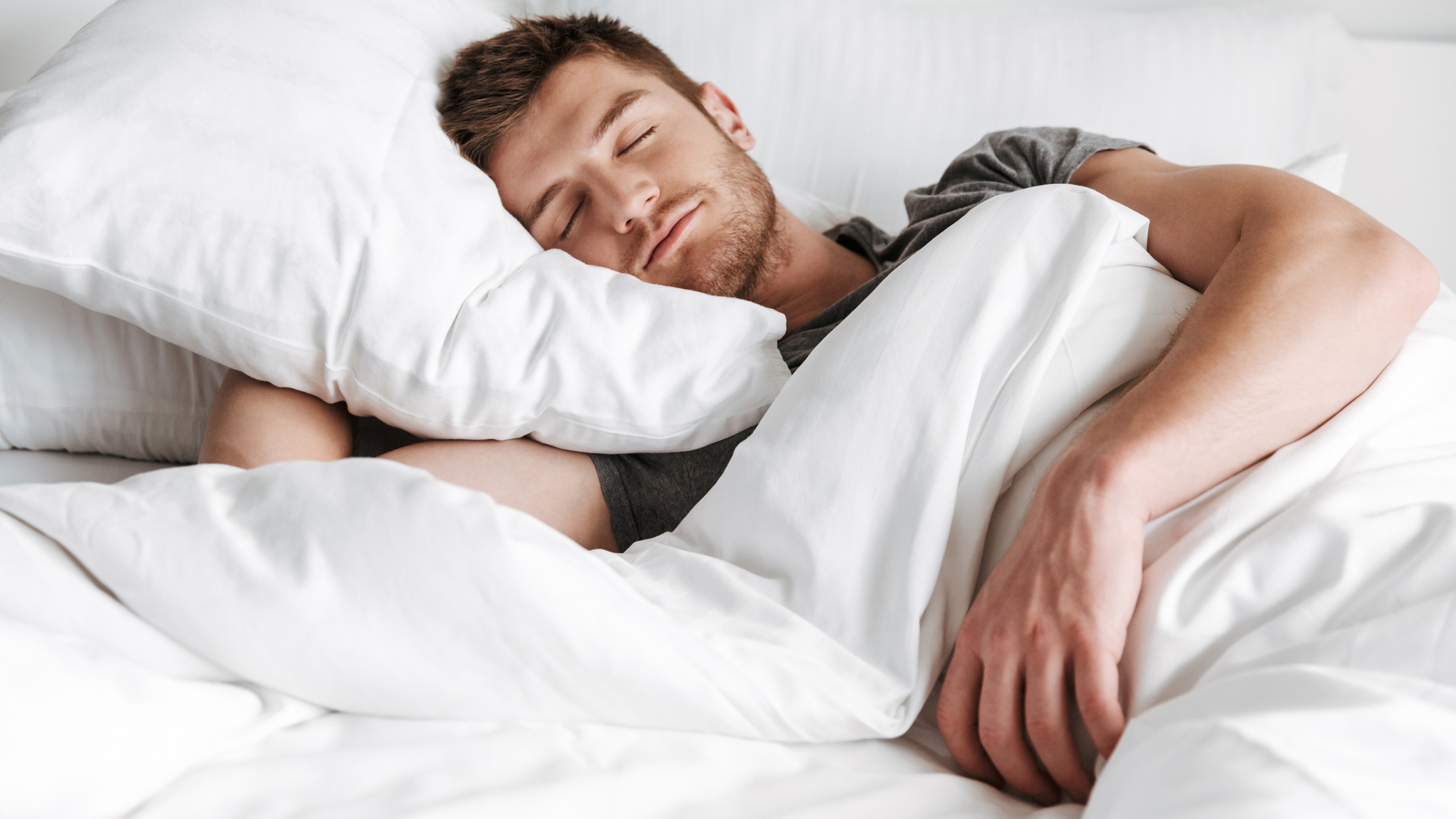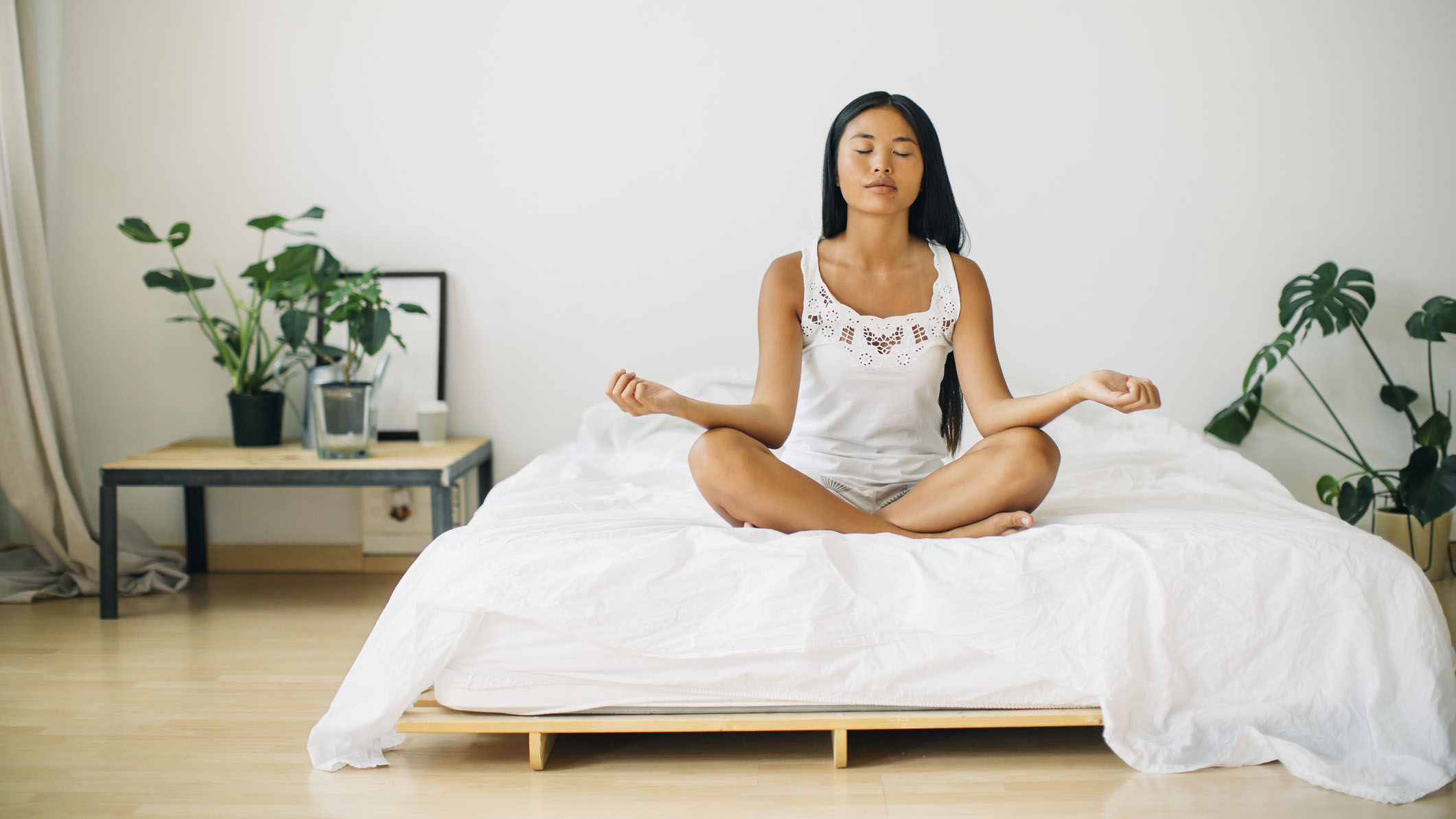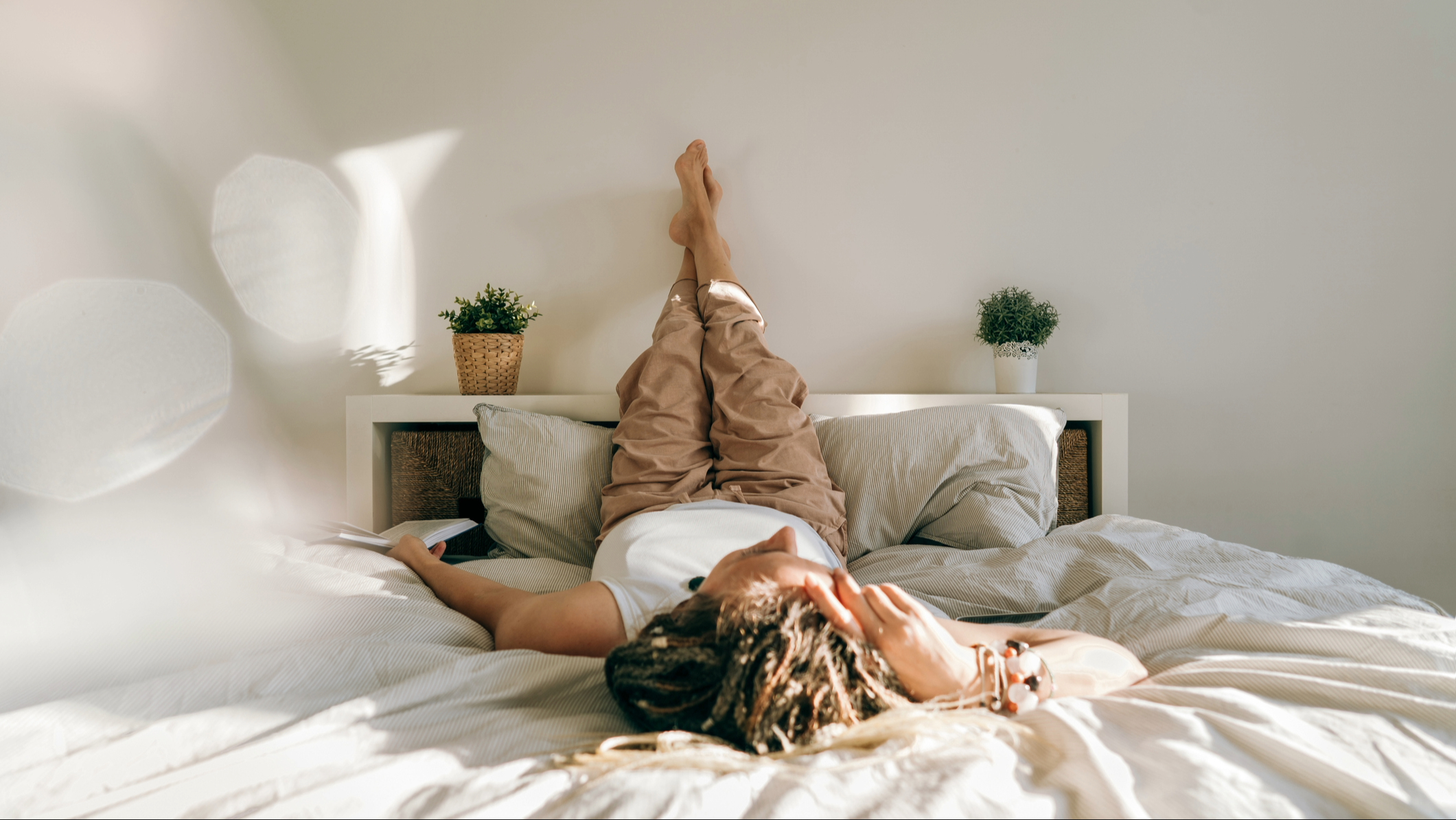Sleep coach reveals the best technique for falling asleep in 2 minutes
Taking an age to fall asleep at night? This tried-and-tested method will change all that

Learning how to fall asleep in two minutes takes practice and repetition, but it is entirely possible to do so – and the benefits are huge. While internet fads and sleep hacks might offer supposed quick fixes, the reality is that only a few techniques are truly effective at sending us to sleep quickly and the Military Sleep Method is one of them.
The Military Sleep Method is one of our favorite nighttime techniques, combining muscle and mind relaxation to create sleep-inducing calm. But if you've experimented with this popular sleep method, you might have been disappointed by a lack of impact. For the first few weeks, it might feel like it's not helping you sleep at all.
Good things often come to those who wait and in this case, patience can pay off. In this guide we'll explain why practice if so important to the Military Sleep Method, and how consistency in your nighttime routine can have you sleeping in under two minutes.
The best way to fall asleep in 2 minutes, according to a sleep coach
There are a lot of tips and tricks for falling asleep on the internet, but Certified Sleep Science Coach Claire Davies recommends one above all else: the military sleep method. This popular technique uses a muscle relaxation and structured breathing to create a sense of calm, activating the parasympathetic nervous system and sending you to sleep.
“You’ll be hard-pressed to find many studies on the Military Sleep Method itself," explains Claire, "but there is good research on the two main elements of this technique: deep breathing for sleep, and progressive muscle relaxation. Together they form a potent cocktail to help you relax faster for sleep."
But there's a third – and essential – element to the military sleep method: repetition. "Nightly repetition is just like when you're learning any other sleep cue – the more you practice it, the more powerful and easier it becomes.”
This isn't an instant fix
The military sleep method can help you fall asleep fast, but even the biggest fans of this technique admit it won't work right away. “Don’t expect to fall asleep in minutes from the first night – the Military Sleep Method doesn’t work that way," Claire emphasizes. "It took me weeks of consistent nightly practice for it to become super-effective."
Get instant access to breaking news, the hottest reviews, great deals and helpful tips.
On average, it takes six weeks of regular use to see consistent benefits from the military sleep method. “It's like learning any new habit or building up a muscle – it requires constant repetition for your brain to learn it and recognize it as a strong ‘it’s time to sleep’ cue," explains Claire.
Without the quick results we often demand of our 'hacks', many give up on the military sleep method straight away. But while it might be six weeks before you feel the full benefit, those early nights are more than just practice.

"The good news is that the military sleep method is very relaxing from the start and a great way to reduce any stress or anxiety you might be feeling in bed," says Claire. "That will in turn help you relax faster for sleep, even if you don’t fall asleep in two minutes. So there are plenty of benefits to learning this sleep method.”
You'll need a relaxing nighttime routine too
To enjoy the benefits of the military sleep method, aim to be as relaxed as possible before climbing into bed. Otherwise, you'll find instead of falling asleep in two minutes, you have to first calm yourself enough to even start the military method.
A few small adjustments to your nighttime routine can help you create this much-needed relaxation. For a start, while many of us brush our teeth right before climbing into bed, moving your personal bedtime prep earlier in the evening can help you avoid late-night stimulation.

The military sleep method works best when it's one part of overall good sleep hygiene. Over the six weeks of learning and practice, build a nighttime routine that emphasizes rest and keeps you calm. By the time you turn off the lights and get comfy in bed, you should be feeling drowsy before you even start the method.
Why this boosts your chance of falling asleep fast
Stress is a sleep killer and many of us carry anxious thoughts to bed. The military sleep method calms both the body and the mind, alleviating symptoms of stress and making it easier to drift off.
Practicing the technique allows you to shift into this relaxing headspace quicker. Soon, you'll learn to recognize the tension leaving your jaw and head as an indicator that it's time to sleep – similar to putting your pajamas on. By integrating the military sleep method into a calming bedtime routine, you should be on the cusp of drifting off as you get into bed.
And with plenty of practice, it will be easier to shift into 'sleep mode' even after a day of high stress. Simply start your military sleep routine and you should feel the tension slip away.
More pro tips for falling asleep fast
Sleep experts suggest that it should take under 20 minutes to fall asleep, but many of us dream of snoozing sooner. If after several weeks of practice you're still not feeling the benefits of the military method, there are plenty of other techniques to consider.
From one military method to another, the Navy SEAL sleep technique focuses on body positioning, using a 'Z' reclining angle to aid naps. Binaural beats – low frequency sounds thought to calm the brain – can also help you achieve better naps.

Our team at Tom's Guide has experimented with a lot of sleep techniques. Here are some of our favorites:
- 4-7-8 method: Breath in for four, hold for seven, exhale for eight; that's the 4-7-8 method. This conscious breathing technique helps release anxiety.
- Cognitive shuffling: This visualization technique uses a series of random images to essentially 'switch off' the brain.
- Progressive muscle relaxation: Similar to the military sleep method, progressive muscle relaxation uses intense focus to methodically release tension from every muscle group.
- White noise: Helping block out disrupting noise (including those inside your head) white noise, green noise, and sound therapy for sleep can help those who find their environment keeps them awake.
One thing to note: although falling asleep straight away might appeal to many of us, it's often a sign of sleep deprivation. If you're snoring as soon as your head hits the pillow, you might be missing out on quality sleep.
How to create the ideal bedroom for sleep
Sleep techniques work best when they're supported by the right environment. That starts with your bed. Picking the best mattress for your sleep style can help you achieve the comfort necessary for both falling asleep and staying asleep.
Combine this with the best pillow and the right bedding and you're already partway to a good night. The space surrounding the bed is also important. Clutter can leave us feeling stressed, while a clean room emphasizes the calm needed for rest.
Light, temperature, and sound are also key factors in a healthy sleep environment. A dark bedroom helps maintain circadian rhythms, while light can stimulate the release of adrenaline and cortisol – invest in an eye mask if you can't avoid outside light sources.
Temperature also plays a role in creating the right environment. Our body naturally cools while we sleep, making 68 and 77 F the perfect temperature for sleep. As for noise, a good pair of ear plugs can block out even a nightclub, while green and white noise can mask disruptions.

Ruth is an experienced Senior Staff writer at Tom’s Guide, covering all things sleep and mattresses. She writes to help people sleep better, from how-tos to the latest deals to mattress reviews, and has interviewed an array of experts who share her passion. She is also our specialist on memory foam — she’s flown around the world to see memory foam being made — and leads our hotel mattress content. She has a deep interest in the link between sleep and health, and has tried enough mattresses, from Helix to Nectar to Simba, to know the right bed really can make a difference to your wellbeing. Before joining the team at Tom’s Guide, Ruth worked as a sleep and mattress writer for our sister website, TechRadar.
